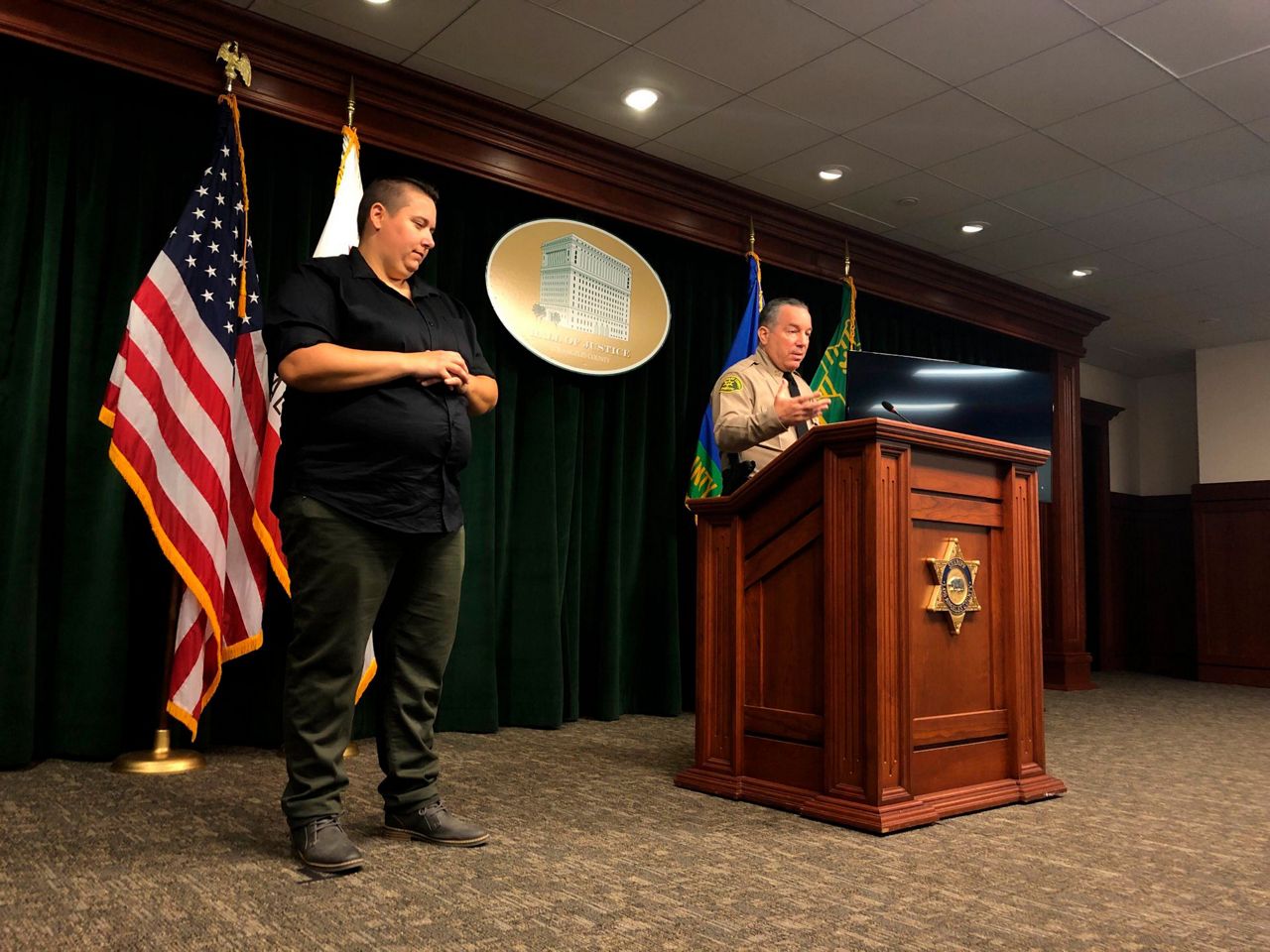LOS ANGELES (AP) — Los Angeles County deputies, who make up the largest sheriff's department in the nation, will begin getting body-worn cameras in October, the sheriff's announced Wednesday.
Sheriff Alex Villanueva said 1,200 deputies in five patrol stations will receive the body cameras beginning Oct. 1. Ultimately, the department is projected to spend $25 million over five years for 5,200 cameras.
Hundreds of deputies reportedly purchased their own body cameras as the department's plans to buy them stalled for years.
The move comes after weeks of civil unrest in Los Angeles and across the nation following the death of George Floyd in Minneapolis police custody. Body camera footage in Floyd’s death has become a critical part of the criminal case against four officers.
The three largest police departments in the country — New York, Chicago and Los Angeles — have all equipped some, if not all, of their patrol officers with body-worn cameras for years.
Such footage has become critical in cases nationwide involving alleged law enforcement misconduct and can provide an unvarnished look at encounters between officers and citizens. Advocates have long called for the cameras to be used — and for the videos to be publicly disseminated.
Though many departments resist releasing the footage, citing ongoing investigations and victim confidentiality, a 2018 LAPD policy requires authorities to release body camera footage that captures shootings by police officers within 45 days of the incident.
The NYPD and Dallas police, among others, have adopted similar policies in the wake of Floyd's death.
However, calls to “defund the police” —- meaning to reallocate part or all of law enforcement budgets to community programs that use qualified, non-police responders to deal with mental health crises, domestic disputes and other emergencies — clash with the tens of millions of dollars it costs to implement body camera programs.
A federal program awarded 420 grants worth nearly $83 million in the last five years to help agencies pay for body cameras, yet municipal governments spend many millions more for cameras and expensive video storage.
Advocates had also hoped that officers might behave better if they knew they were being recorded. Yet a 2019 analysis by researchers at George Mason University of 70 past studies found cameras have not met police leaders’ nor citizens’ expectations and there is still much that's unknown about their impact.
Villanueva said body camera footage would have helped detectives investigate a recent shooting where a deputy fatally shot an 18-year-old man, Andres Guardado, five times in the back. There is no known video of the shooting, and the investigation remains ongoing.
“George Floyd and Andres Guardado are sobering reminders of the critical need for transparency and accountability in law enforcement,” Supervisor Mark Ridley-Thomas, a member of the county's board of supervisors, said in a statement Wednesday.
There will be random audits of the deputies' footage, Villanueva said. The cameras will have a 1-minute buffer period in which they will record video — though not audio — before they are manually activated.
The sheriff said the department signed the deal with manufacturer Axon, which is known best for developing the Taser, on Tuesday.
___
Associated Press Writer Jake Bleiberg in Dallas contributed.
Copyright 2020 The Associated Press. All rights reserved. This material may not be published, broadcast, rewritten or redistributed without permission.



